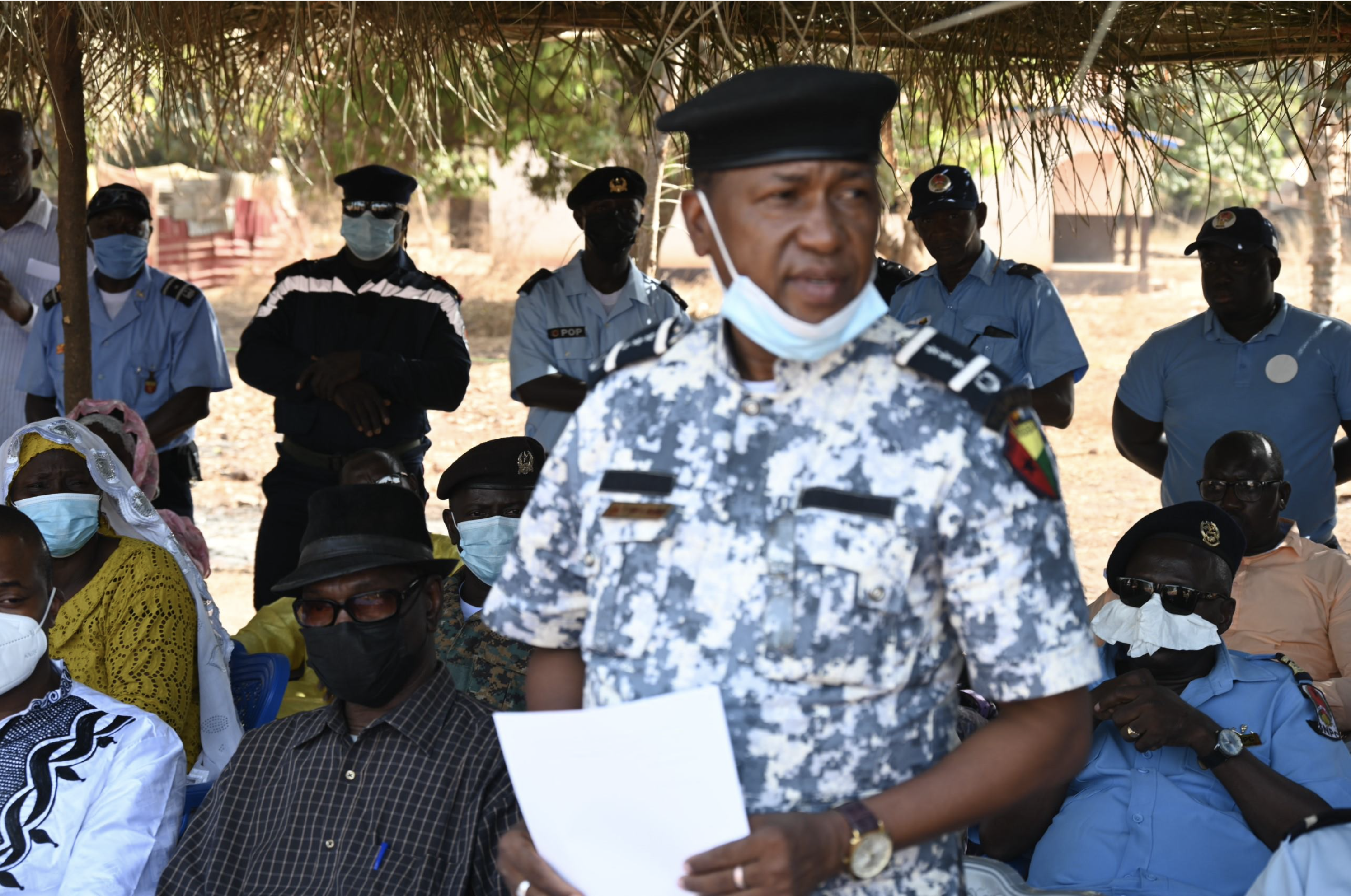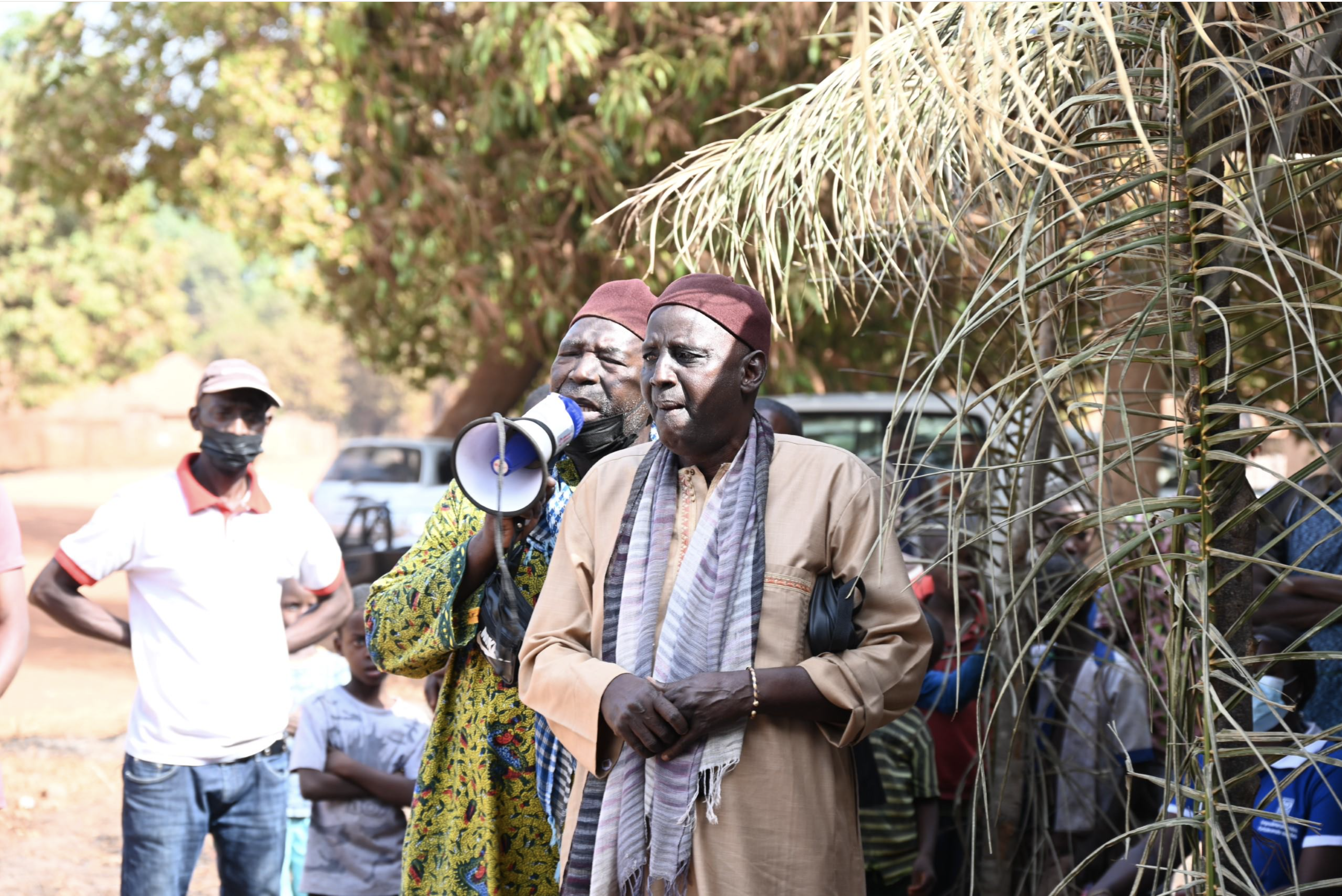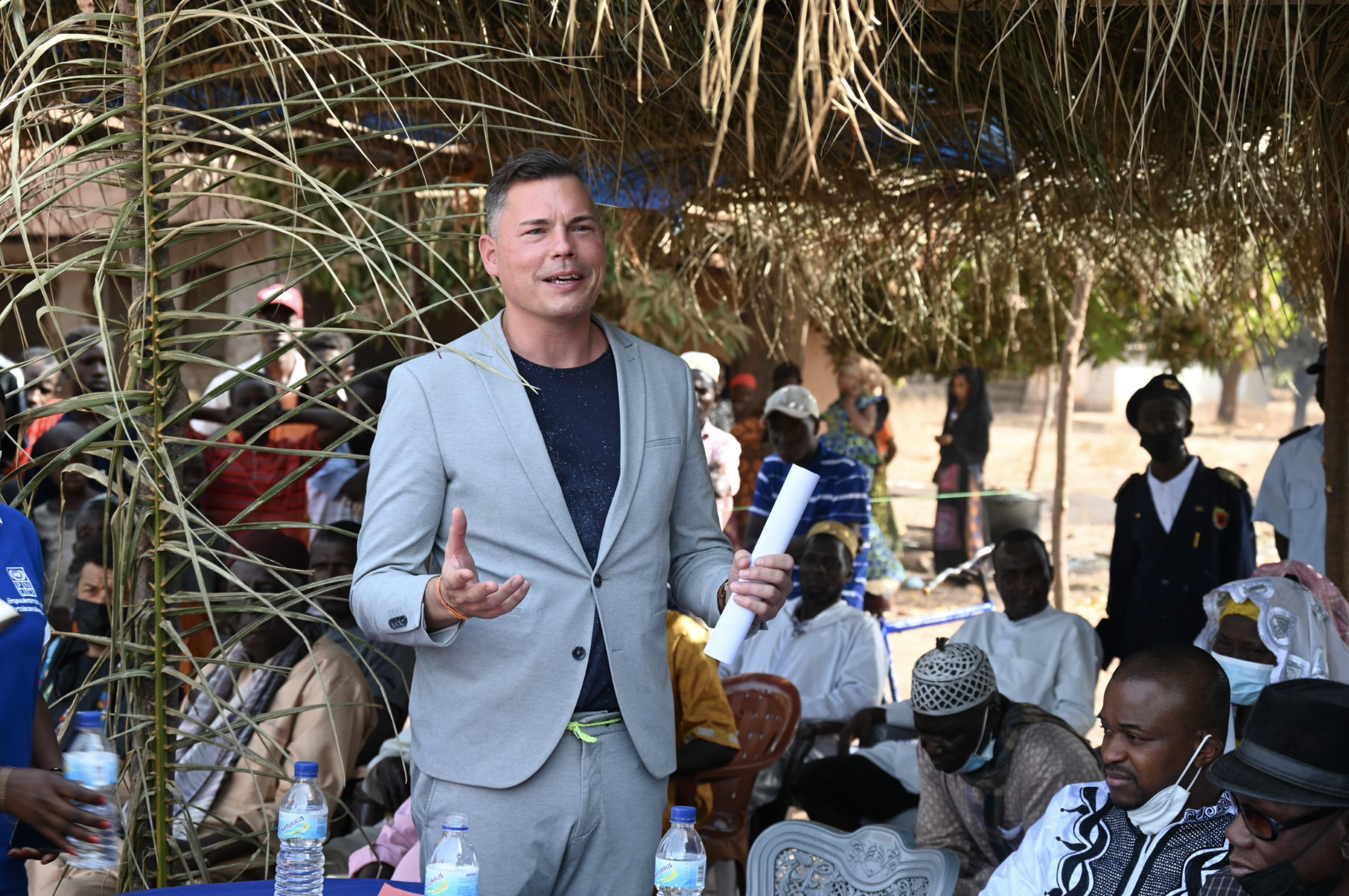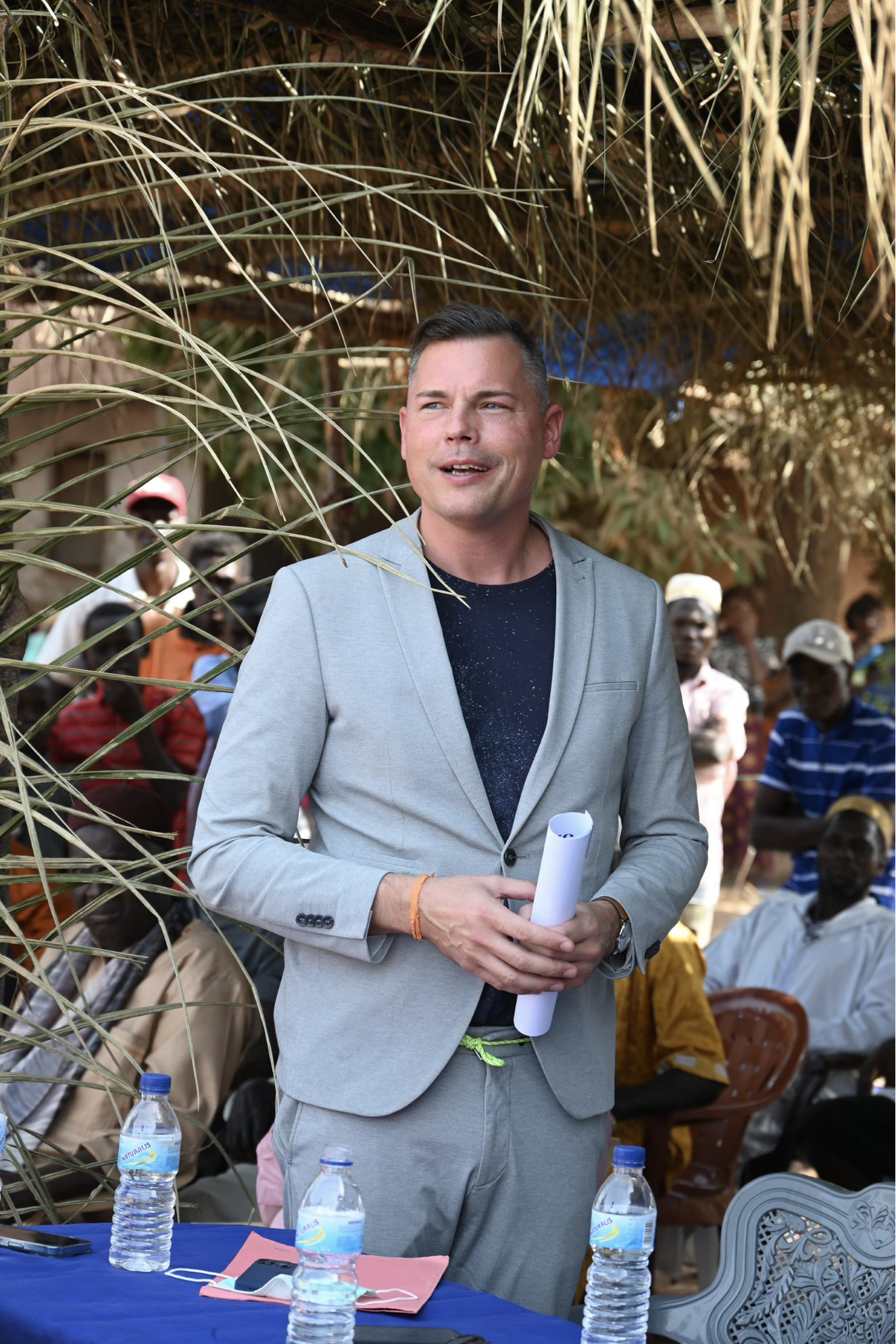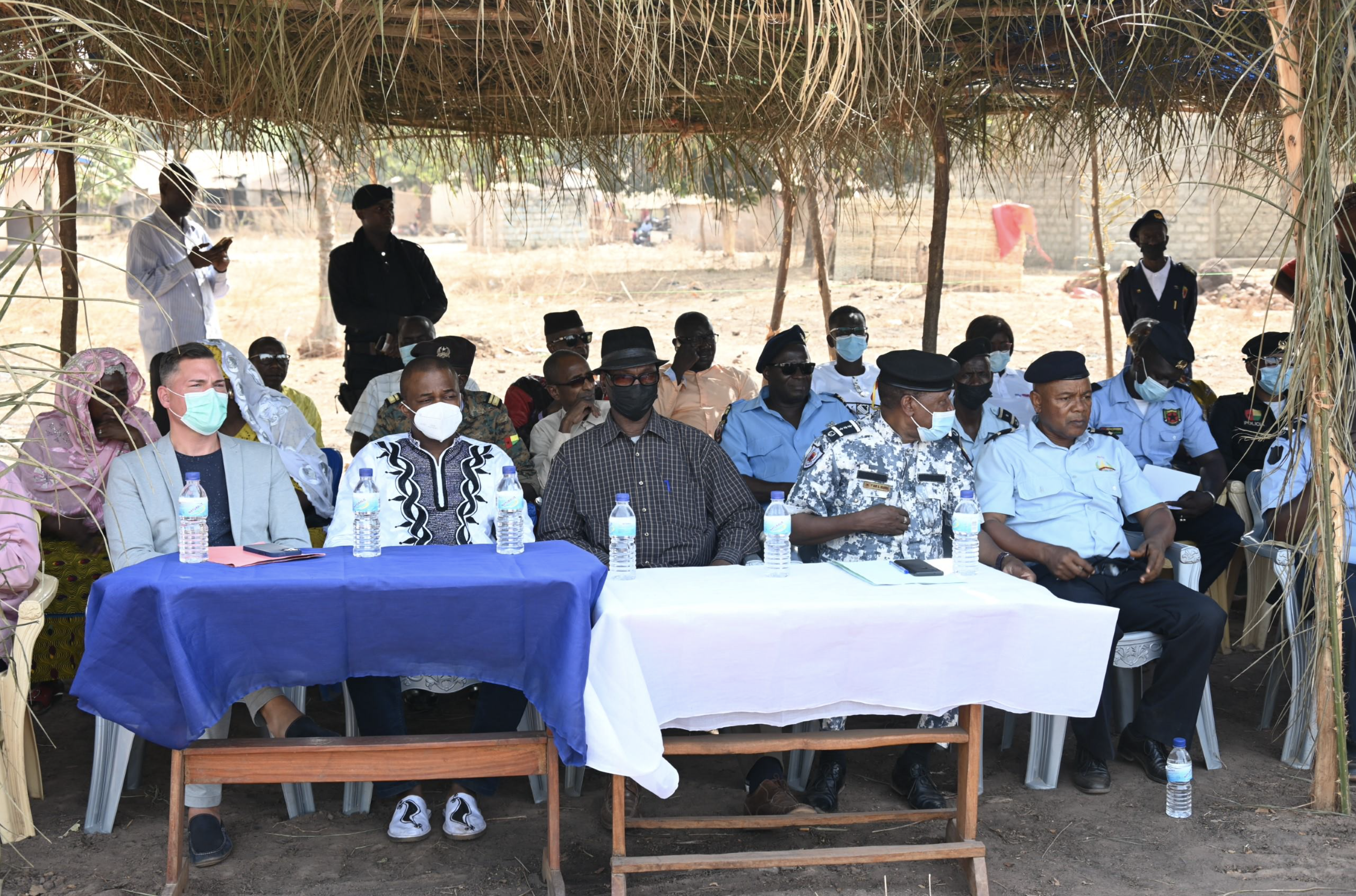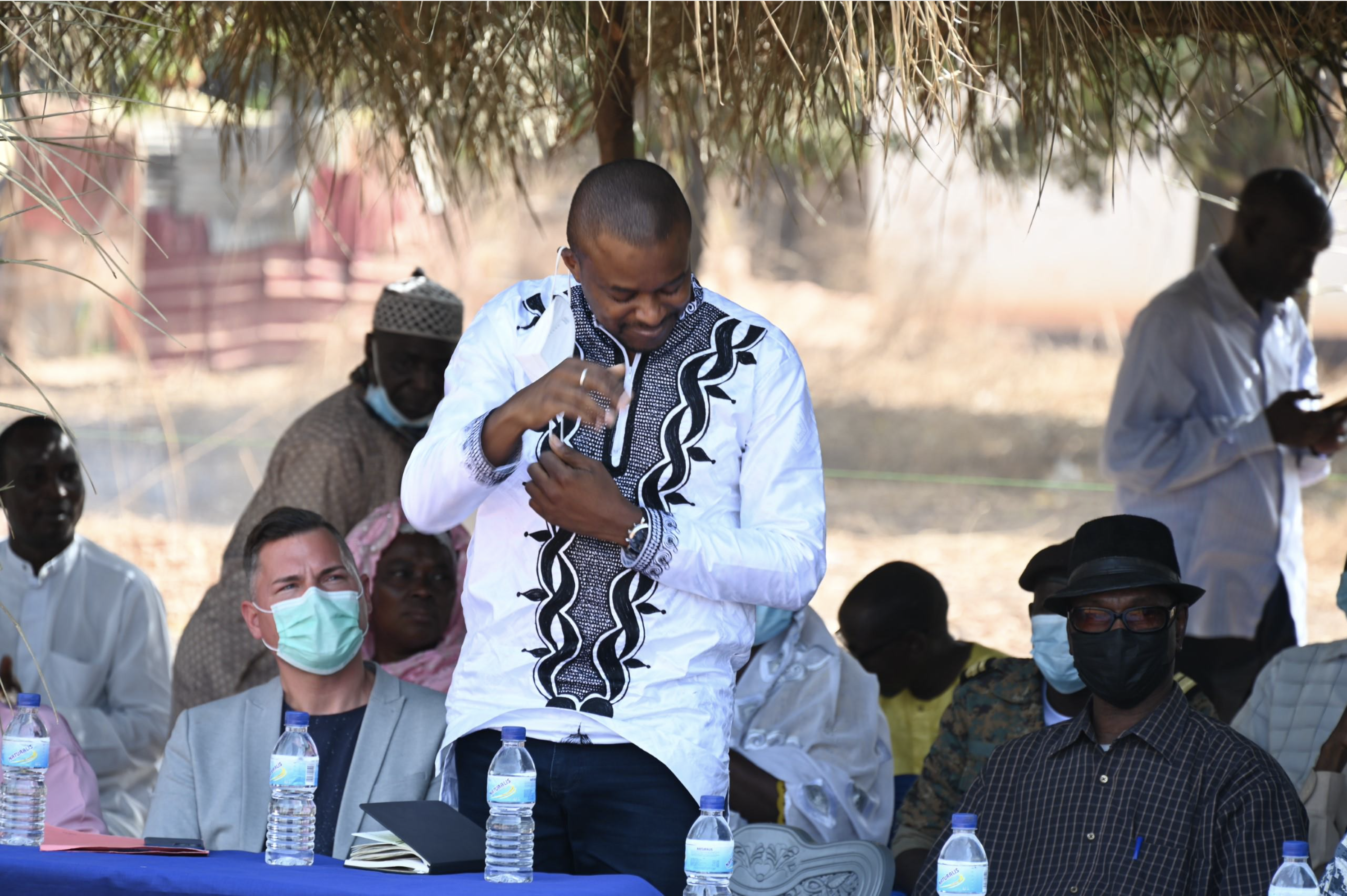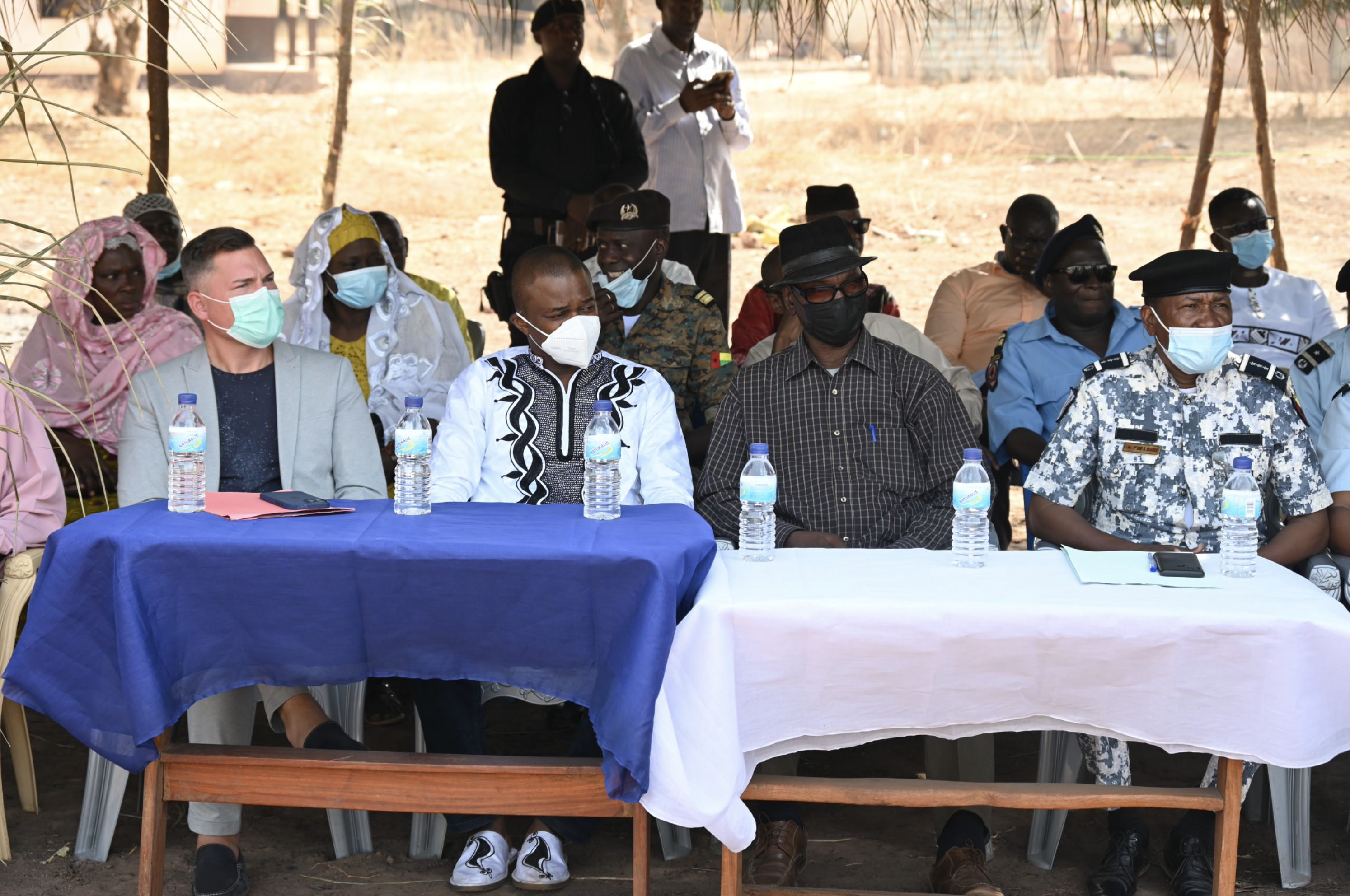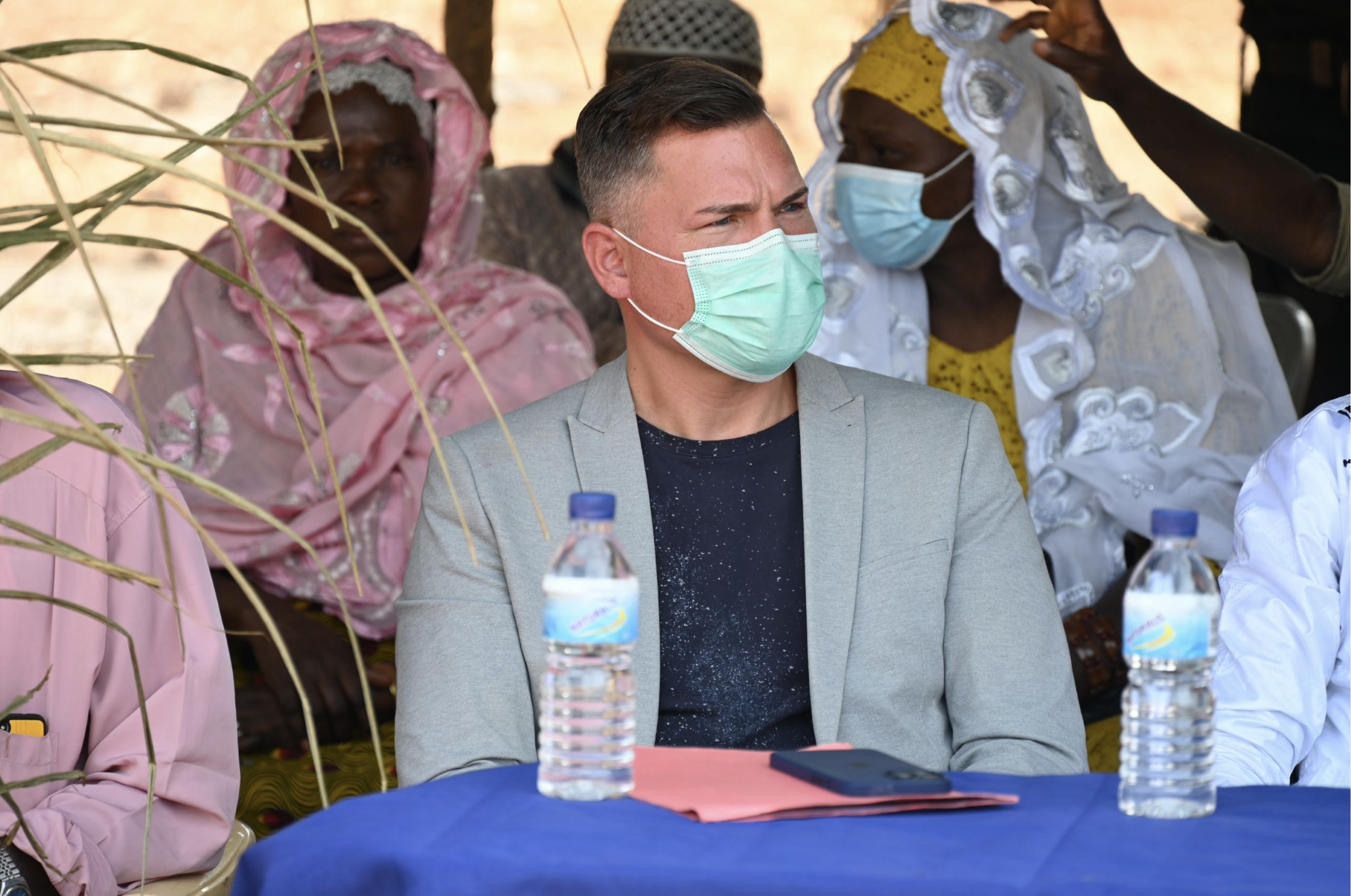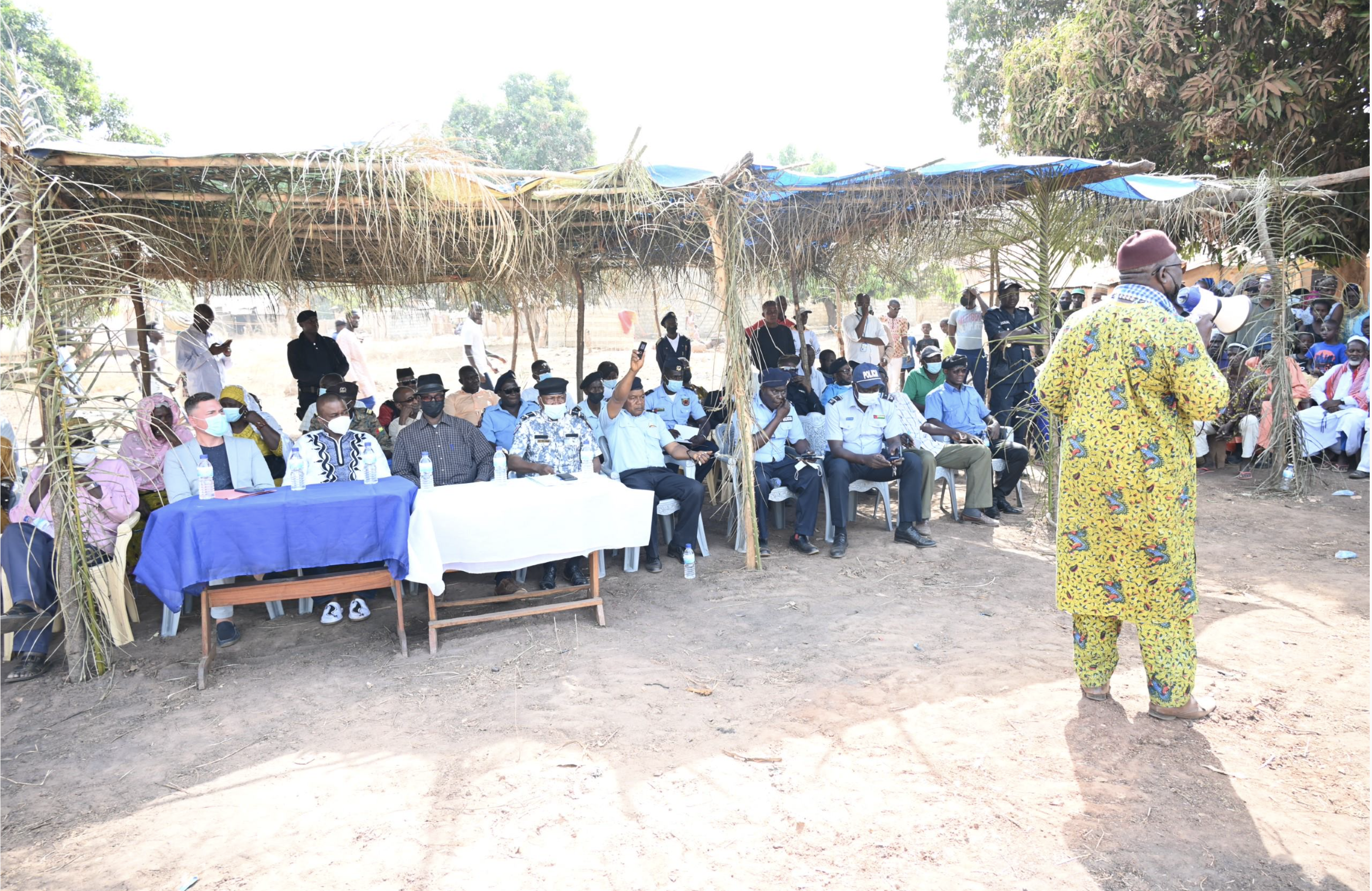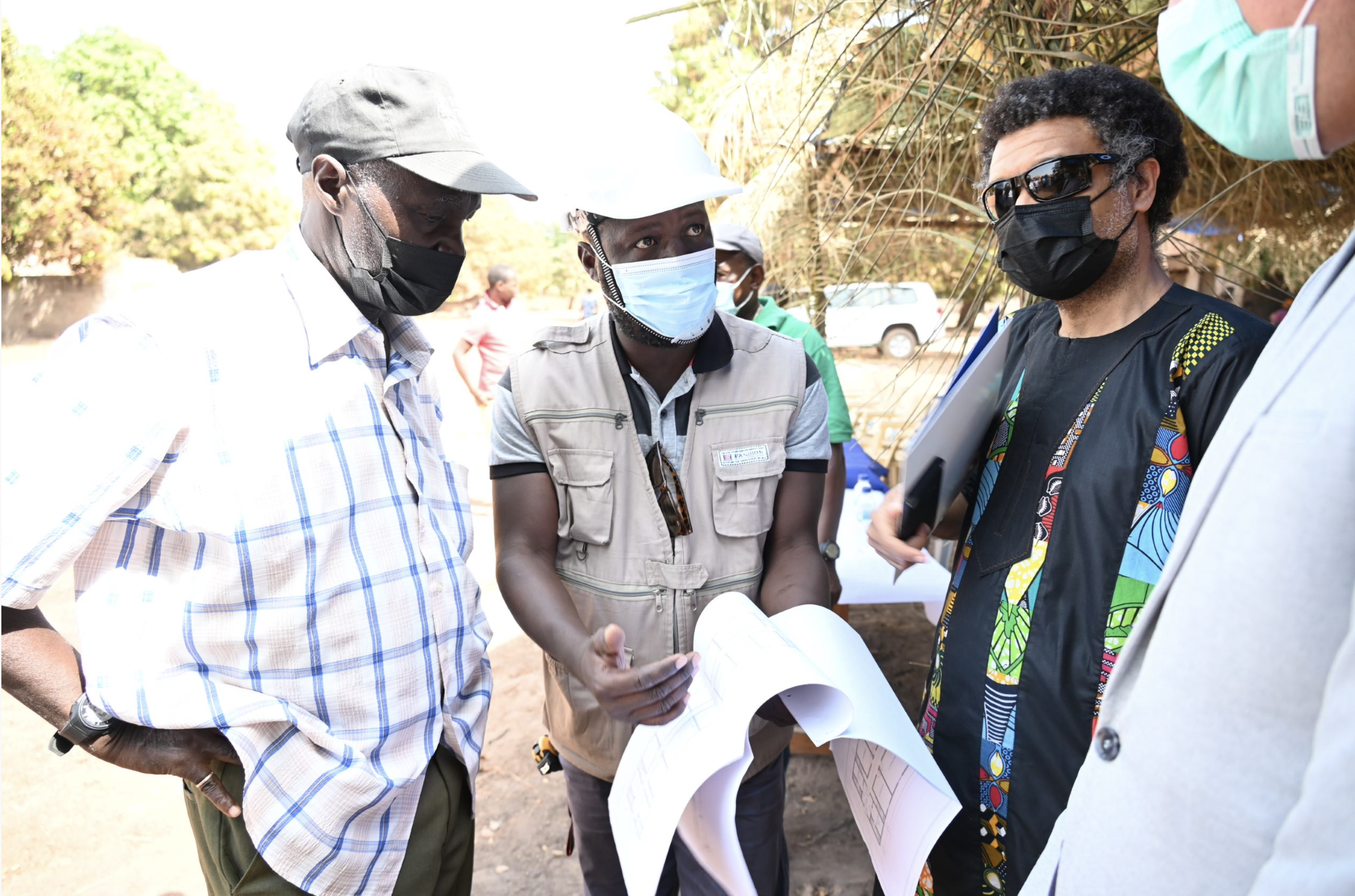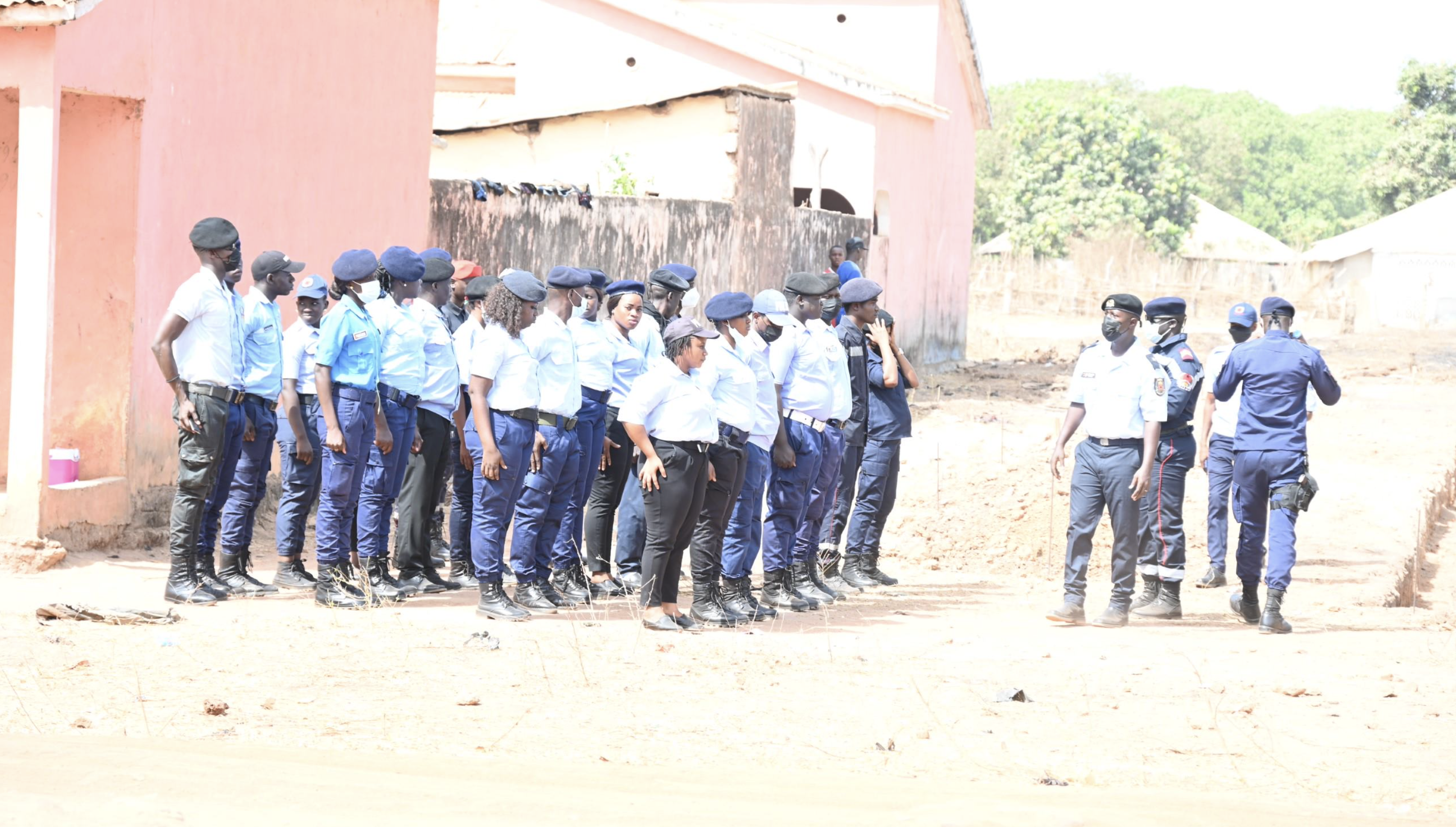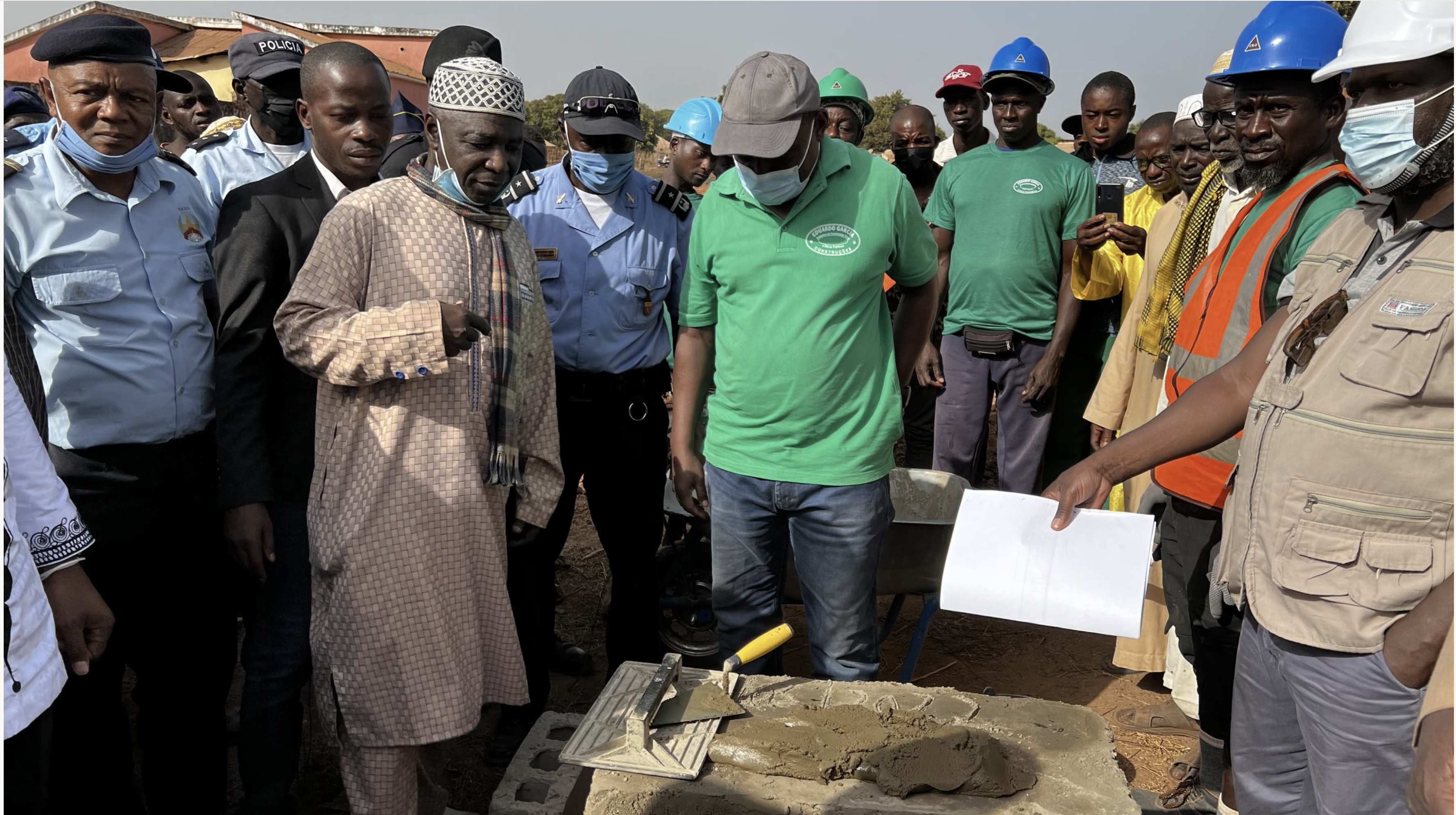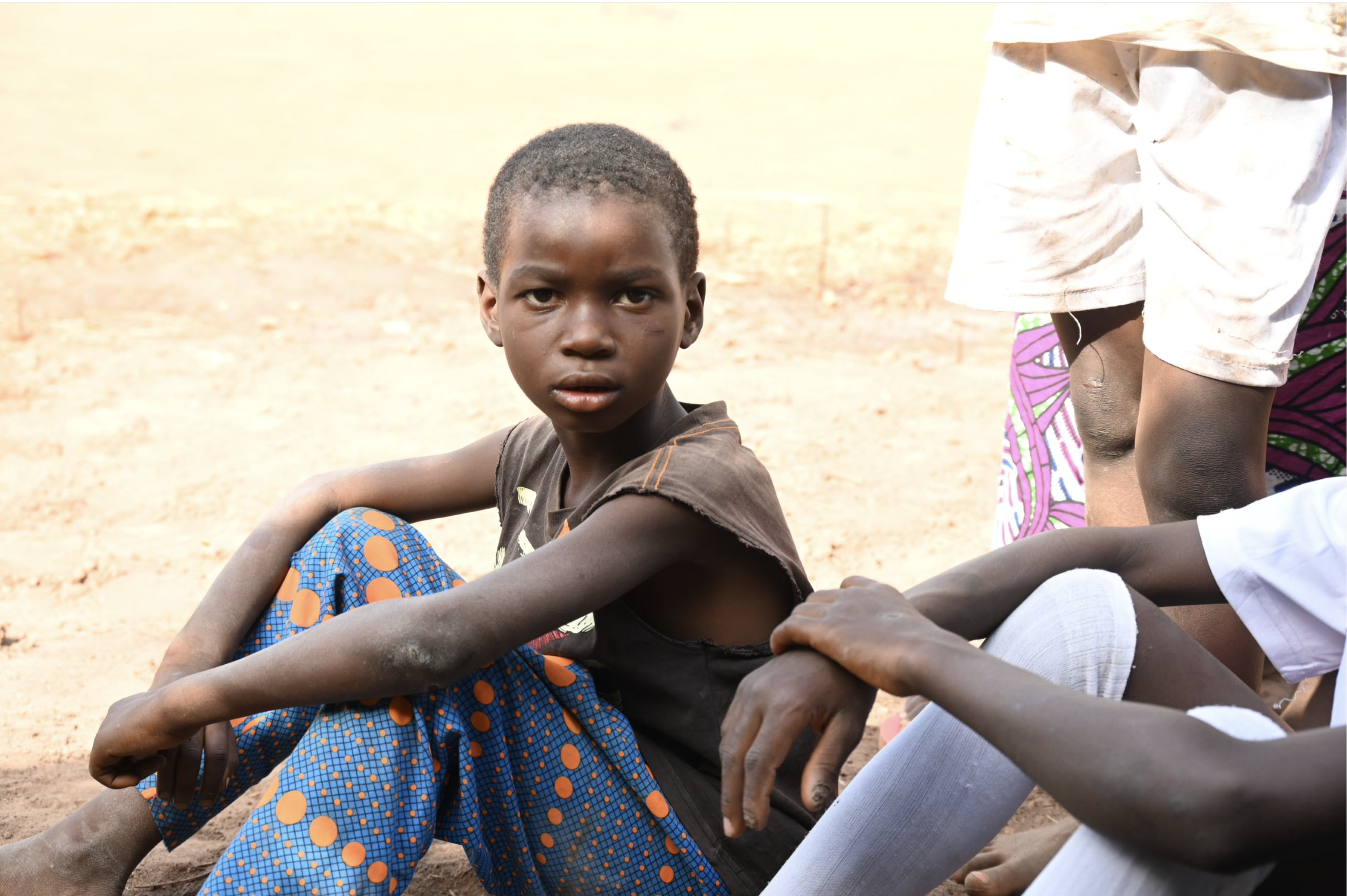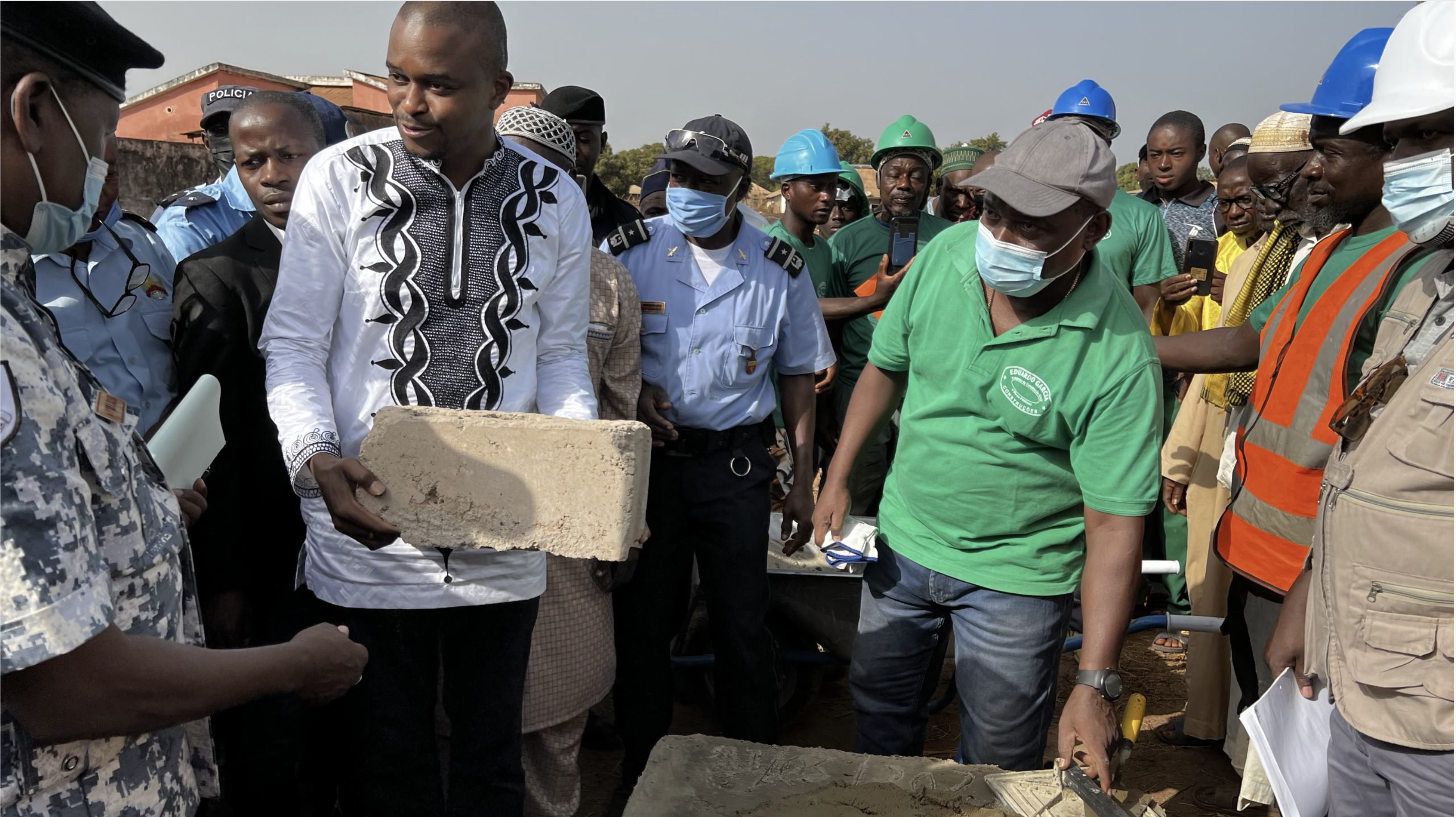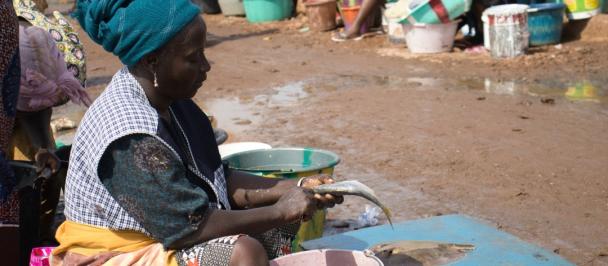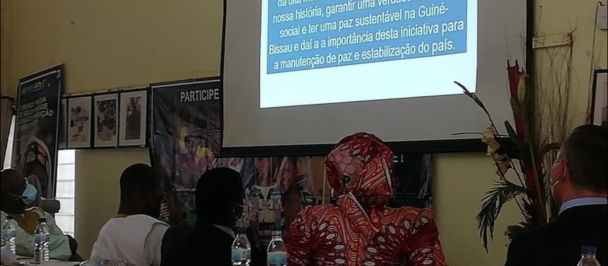Photo: UNDP, 2022
Guinea-Bissau is reforming its police force with the introduction of model police stations fully equipped for efficient and effective community policing. On March 15th, 2022, a foundation stone to construct a model police station in Gabu was laid, which would include basic facilities, communication and specialized police investigations equipment, office furniture, temporary detention facilities, appropriate juvenile and female desks, and general service security provisions among others. The initiative is being implemented with the support of the UNDP Guinea-Bissau Office and with financing from the United Nations Peace Building Fund.
Community policing is based on police officers and citizens working together in creative ways to solve actual problems at a local community level, which are related to crime, fear of crimes and other forms of public disorders. To achieve these goals, the police must develop a close relationship with the law-abiding citizens whom they serve and protect. This allows the citizens the opportunity to help define priorities and engage in various activities with the aim of improving the general quality of life in the areas where they live. In this way, community policing changes from a reactive approach to a proactive approach toward problem solving.
The model police station which is an integrated concept combining infrastructure, training and community policing was introduced by the Rule of Law unit of the Special Political Mission in the country, UNIOGBIS, and the Guinea-Bissau government, to serve as a model of good practice and lessons learned for the importance of community policing in the government’s Security Sector Reform programme. The first model police station was inaugurated on 31 August, 2010 in Bairro Militar, one of the largest suburbs in Bissau. Another one was opened in Buba in the southern region of the country in 2019 by the former UNDP RR and Deputy Special Representative of the Secretary-General of the United Nations, David Mclachlan-Karr.
Photo: UNDP, 2022
The implementation of the first model police station enabled the Guinea-Bissau national authorities to showcase a new model of policing and affirm the state authority that will reflect the envisaged end state of a reformed police service in terms of police organization, standards of officer qualification and integrity, application of citizens and service oriented community policing, and minimum equipment standards. The model helped to set the standards in terms of economic and institutional sustainability.
According to the current UNDP Resident Representative, Mr. Tjark Marten Egenhoff, “The expansion of the full implementation of the model police station at Bairro Militar in Gabu is projected to enhance the level of professionalism of the police service in accordance with international standards, increase public confidence in the police and state authority, contribute to crime prevention and the reduction of threats and other unlawful activities, and improve the conditions conducive to a secure environment for the socio-economic development of the country and its local communities.”
“The police station in Gabu when completed, will support the capacity of the police service in the area of policing and internal security, contribute to the restoration of state authority and promote enhanced access to justice by the population. It will also help build confidence between the population, the state authorities and international partners including, the UN, responding directly to the priorities in the ongoing national public administration reform,” a source from the Government of Guinea-Bissau added.
It is expected that the model police stations will be expanded to a total of twelve such stations throughout the country, as part of an overall total of up to thirty-four model police stations in Guinea-Bissau.

 Locations
Locations